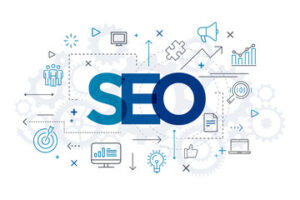Backlinking is a process that requires a lot of time and energy. However, there are many tools to help you streamline the process. It is best to work with a professional who has experience in this area.

A backlink is a hyperlink that points from one website to another. They are a crucial factor in SEO and contribute to your online visibility and credibility. Visit https://www.rankboss.com/ to learn more.
Link building is a fundamental part of any SEO strategy and can boost your website’s visibility online. In addition to improving your search engine rankings, high-quality backlinks also help establish your business’s credibility and trustworthiness in your industry or niche. To build quality links, you need to participate in relationship-building activities with other webmasters, bloggers, and influencers in your niche. This can involve personalized email outreach, attending virtual and in-person events, or contributing content to other websites. Regardless of the approach, the goal is to develop relationships that are mutually beneficial and result in higher traffic and conversion rates.
Link-building strategies should prioritize quality over quantity. The best source for a link is one that has a good domain authority and is relevant to your audience. It is also important to avoid linking to spammy or unreliable websites, as these practices can have a negative impact on your SEO performance.
To ensure that your link-building campaigns are effective, you must define clear goals and monitor them regularly. You can do this by using tools that measure your search engine ranking performance, such as Ahrefs Rank Tracker. In addition, you can use your own metrics to track the effectiveness of your campaigns. This will allow you to measure your ROI and make data-driven decisions about how to improve your strategy.
A successful SEO strategy requires a deep understanding of your audience and their needs. This will guide your content strategy and the types of backlinks you seek to acquire. For example, you should consider the intent behind different search queries (informational, navigational, or transactional) and tailor your content to those needs.
While the search engines’ algorithms have evolved over time, backlinks remain an important factor in determining search engine results. In the past, they served as a “vote of confidence” for your content, but today, they are considered to be only one of many signals that influence a page’s ranking. It is still important to build high-quality backlinks, but it is more important to create content that answers your audience’s questions and addresses their pain points.
Keyword research
Keyword research is a critical step in the SEO process. It enables marketers to understand the intent behind user queries and choose keywords that are relevant to their businesses. While many people focus on the quantity of search traffic, effective keyword research goes beyond this to decipher the intent of users. It can also help businesses attract the right kind of traffic, which is crucial to their business results. For example, someone searching for “best DSLR cameras” is likely looking to buy, whereas someone searching for “how do DSLR cameras work” is probably seeking information.
Performing keyword research can be time-consuming, but it is vital for any business that wants to improve its ranking in search engines. It allows marketers to collect a deep well of data and informs their content strategy and website architecture. It can also help them identify opportunities for tactical optimizations.
When choosing keywords, it is important to consider the search volume and competition level of each term. The search volume can provide an indication of how popular a keyword is and how much effort will be needed to compete in the SERPs. The competition level can indicate how difficult it will be to rank for a particular keyword, so you should aim to target low-competition keywords.
It is also important to consider the commercial intent of a particular keyword when selecting it for your content marketing campaign. This will tell you if the keyword has a potential to drive sales or conversions. For example, a medical practice may use a keyword with high search volume and low commercial intent to attract new patients, while a financial institution might focus on keywords with higher commercial intent and more competition.
In addition to assessing the search volume and competition of each keyword, you should also consider its synonyms and tenses. For example, if you are targeting the keyword “tacos for dinner,” it is helpful to think of synonyms like dinner, meal, or supper, provided the search volume supports them. You should also consider the plural and singular tenses of your keyword, as well as its variations in spelling.
Content creation
Content creation is a process of developing ideas that appeal to your audience, turning them into tangible media and sharing them across multiple platforms. It’s a vital component of any digital marketing strategy and can be used to achieve a variety of business goals. This includes attracting new customers, retaining existing ones, and increasing website traffic. Content creation also helps build brand awareness and establishes your business as an authority in your industry.
The first step in the content creation process is to understand your audience and their needs. This can be done through interviews, surveys, and analytics data. Once you know your audience, you can create a content plan and determine what type of content will be most effective for your company. For example, if your audience is looking for information on a specific topic, you can create blog posts about it.
Once you have a content plan, it’s time to start creating your content. You can use keyword research to identify popular search terms and create content that reflects them. This will help you rank higher in search engines and attract more visitors to your website.
If you want to take your content creation game to the next level, consider a content production workflow. This can help you stay organized and productive as a team. It’s important to define clear roles for each role in the workflow. This will reduce confusion about who is responsible for each task and avoid overlapping responsibilities.
You can also create a content marketing playbook to guide your company’s content efforts. This is an essential tool for any business that wants to succeed in the competitive marketplace. The playbook will ensure that all your content is on target to meet the needs of your audience and achieve your company’s objectives.
A good content marketing strategy should include a mix of formats, including video, blogs, podcasts, and webinars. Each format has its own unique advantages, but they all share the same goal: to increase engagement and drive more traffic to your website. To ensure your content is performing well, you should track its performance regularly and make necessary adjustments.
On-page optimization
On-page optimization refers to the strategies you can implement on your website to improve its visibility and ranking potential. This includes the use of relevant keywords and optimizing content and page structure. It also involves ensuring that your website loads quickly and provides a good user experience. This is in contrast to off-page SEO, which focuses on external factors like backlinks. On-page optimization is a crucial part of any digital marketing strategy, and it can be a challenging task to balance between user experience and technical SEO considerations.
Adding keywords to the title and header tags of your pages is an important aspect of on-page optimization. However, you should avoid keyword stuffing, which can damage your search engine rankings and provide a sub-optimal user experience. Instead, incorporate your keywords naturally into the text and use different variations of the same keyword to target a broader audience.
Another aspect of on-page optimization is internal linking, which helps to connect related pages and distribute page authority. It can also help to increase the visibility of your pages by highlighting them in search results. It is a good idea to include links to related pages within your site, but be sure to check for duplicate content as this could negatively impact your rankings.
The most important aspect of on-page optimization is the quality of your content. This is what determines whether your content will rank high in search engines and whether or not it will be relevant to users. The key is to create content that answers your audience’s questions and concerns. For example, if someone searches for “dining tables,” you should have a web page that answers this question and provides valuable information.
In addition, it is important to track the performance of your on-page optimization strategies using tools like Google Analytics and Google Search Console. These tools can give you insights into user engagement and other metrics, and allow you to adjust your on-page SEO tactics accordingly. You should also pay attention to user experience metrics, such as bounce rates, session durations, and page load speed.

